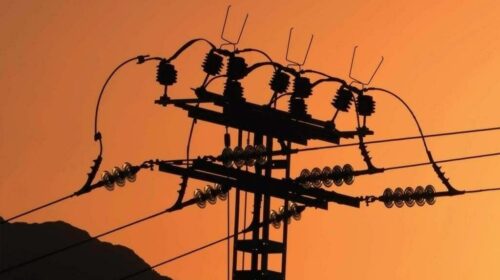Pakistan Institute of Development Economics’ Power Commission has asked the government to conduct a forensic audit of Independent Power Producers (IPPs) in the wake of alleged inflated and fraudulent charges secured from the national exchequer.
The PIDE’s Power Commission on Tuesday launched a book titled “Power Sector: An Enigma with No Easy Solution” It stated forensic audit of both public and private generation companies should be conducted, followed by recoveries without any relaxation from IPPs. There should be no conditionalities for IPPs in the pipeline. In the future, no sovereign guarantees; all investments must be based on competition and financial dynamics of the sector.
A competitive bidding document must be in place before commissioning future projects. In the short term, a moratorium on IPPs needed, including proposed solar projects of 10,000MW. So many parallel sector entities with limited capacity cannot safeguard the people’s interests and need to reduce the number and strengthen the remaining.
It recommended that fragmentation in power planning must change and go over to the Planning Commission (PC). It is time that NTDC and Discos build their professional and institutional capacity, launch formal R&D components in their organisation and encourage their professionals to proactively contribute to the PC’s planning process.
Policymakers/planners should understand complex economic, political, water and environmental interrelations and energy systems’ uncertainties.
Coordination in the planning process at the PC should not be limited to the energy sector. Serious consultation with other sectors needed.
Nepra must be empowered to play its role as specified in Clause 31 of the NEPRA Act. Nepra should eliminate all kinds of subsidies and cross-subsidies from the tariff. Nepra needs to simplify its rules and processes to minimise delays. It needs to build its capacity to work and cope with sector challenges and market forces while meeting its obligations as a regulator.
For the recovery of capacity payments, there is a need to increase sales/consumption by reducing prices significantly.
Transitioning from a deficit regime to a surplus one requires changing the load separation model for power tariffs. Tariff structure should be based on economic efficiency, cost recovery, simplicity, transparency and non-discrimination. A linear (flat) tariff rate is the best way to maximise revenues and minimise inefficiencies in the sector. Notify differential tariffs for each geographical market (Discos), that is, tariff determination based on service cost.
All the socio-economic and political obligations of the government must be duly budgeted and not part of consumer tariffs to burden compliant consumers. We already have a social protection system. There is no need to subsidise electricity.
Regarding electricity market, the PIDE’s Power Commission suggested the market should start with bilateral contracts keeping transmission constraints and participants’ capacities in mind.
All Discos should also be allowed to purchase energy on a short-term contract and acquire generation assets falling inside their territorial jurisdictions and outside. Nepra should facilitate “wheeling” by discouraging those creating hurdles, with wheeling costs equivalent to MC (margin cost). Negotiate Power Purchase Agreements (PPAs) with IPPs to free at least 50pc of their capacity to be traded in the market. The electricity market requires legal, regulatory, financial and human capacity at every level – build the capacity first.
For the future architecture of the power sector, it is recommended to reduce the government footprint and ultimately move the government out of the power sector by 2030. HRD and HRM are compulsory for a successful entity. Upgrade the training institute(s) of Wapda considering the present-day requirements. Shut down entities with similar functions. Shutting or merging twenty-plus free float entities operating now into a single National Energy Authority could bring about sanity and coordination in the energy sector.
We need a power policy considering federation challenges, a national goal and subsequent planning and implementation strategies. The power companies need to rely more on IT services; adopt innovative managerial techniques. They must undertake technological changes at the earliest.
There is a need to optimise the generation portfolio. There is a need to monitor, forecast and manage a complex mix of small to large generation units. Due to highly volatile global energy market, distributed generation using localised renewable energy sources is the ultimate solution for energy security.
Move from centralised energy management to decentralised management; storage technologies; micro & smart grids, energy conservation and efficiency should be the priority. A power commission comprised of hardcore power sector professionals should be formed to guide and monitor the reform process.
According to press release issued by PIDE, Pakistan’s energy sector is going through a severe crisis. Circular debt of power sector has escalated to Rs2.44 trillion. To find solutions to the energy sector problems, Pakistan Institute of Development Economics (PIDE) formed a “PIDE Power Commission”. The Commission comprises power sector experts with decades-long experience in the sector.
PIDE has compiled the book, funded by the RASTA programme. The book suggests workable, sustainable and integrated solutions to power sector woes.
At the event, introductory remarks were given by the Vice Chancellor of PIDE, Dr Nadeem ul Haque. He said Pakistan had suffered a lot because of energy crisis for many years. Circular debt has been with us for 15 years or so. Pakistan has incurred massive losses (a cumulated loss of more than Rs5 trillion). It’s time to take the matter seriously, he said.
Federal Minister for Energy (Power Division) Engineer Khurram Dastgir in his remarks as chief guest said a policy has been adopted to generate electricity from cheaper sources and 10,000 megawatts will be generated from solar power in different areas of the country.
“During the recent floods in the country, we did not let electricity become a problem and ensured power supply in all the affected areas”, he mentioned.
He said all power-generating plants in the country would be planned on local fuel. The foreign exchange would be saved by reducing consumption of imported oil, furnace oil and coal.
The minister said the country has plenty of expensive electricity, but government does not have plenty of cheap electricity. All issues mentioned in this book are correct. We have to address these issues, he added.
He said the billing issues would be addressed as a top priority to reduce losses in the power sector. In addition, adequate measures are being taken to prevent and catch electricity theft. This will reduce the burden on common consumers.
“At the governance level, significant steps are being taken to collect electricity bills. In the next two weeks, the vacant vacancies will also be filled”, he said.
He said government is working on eco-friendly and affordable power generation projects. The Shanghai Electric Power Project of 1320MW would start production next month that would run on Thar coal and provide cheaper electricity, he added.
Federal minister said government is trying to find cheaper resources that can generate electricity from Rs7 to Rs8 per unit to reduce burden on common man. To speed up the development journey, local coal, water, wind and solar power generation projects are being promoted, he said.





